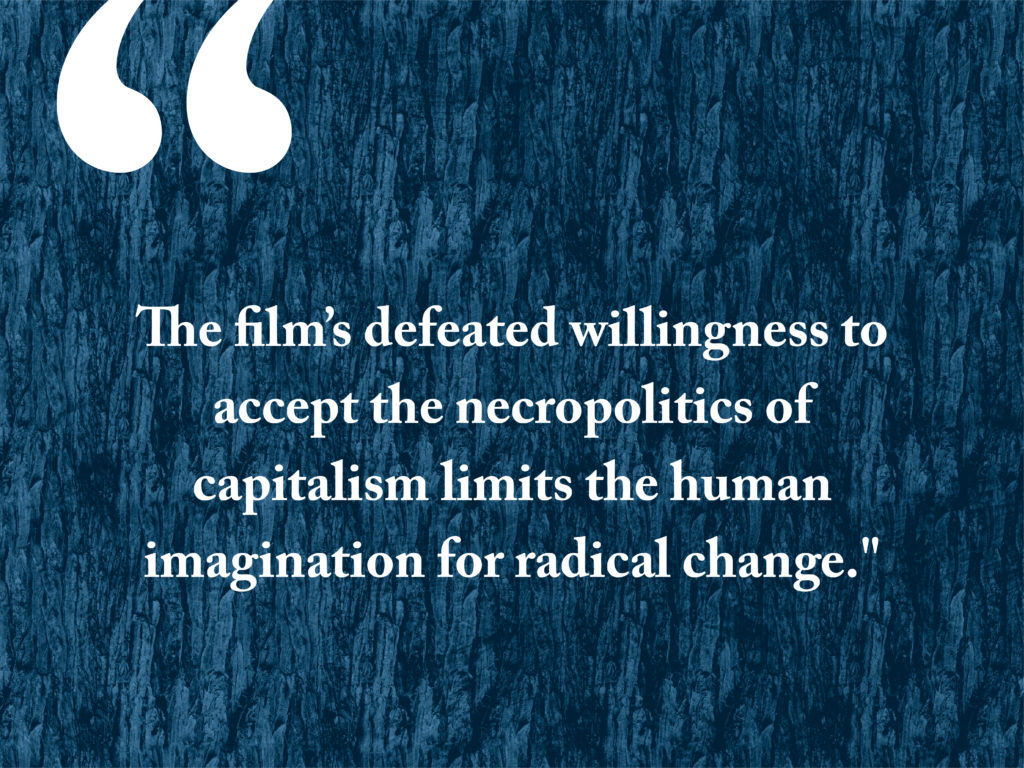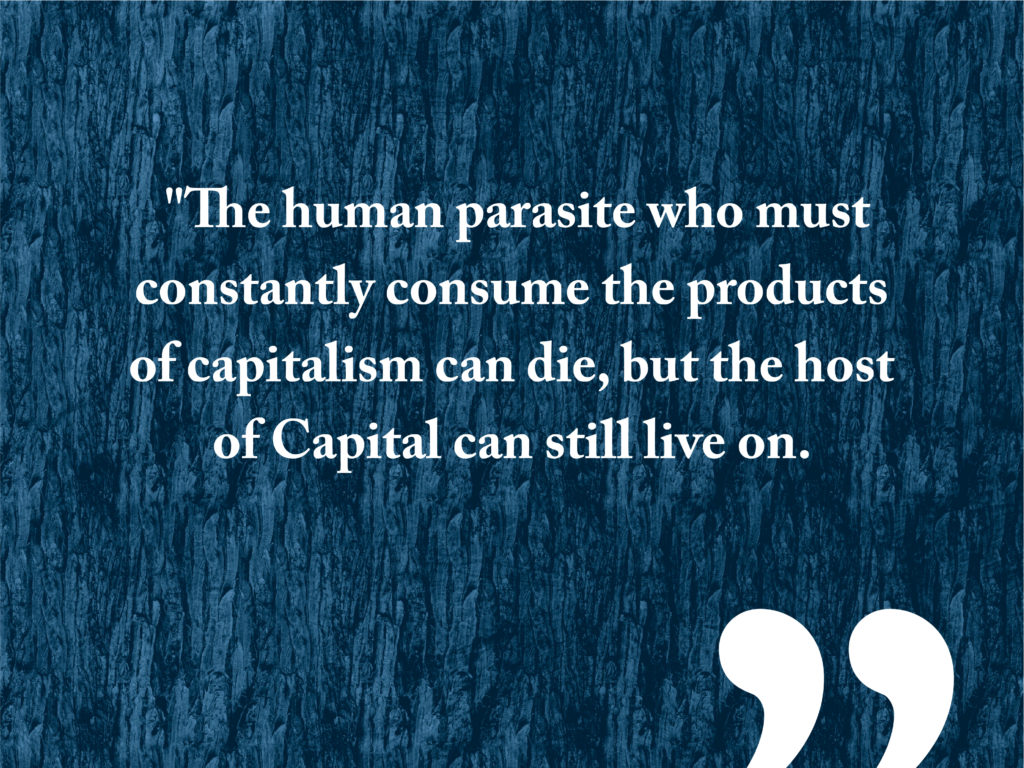Ethan Yu
Staff Writer
This article contains spoilers for the movie, “Parasite.”
Capital is an abstract parasite … the living flesh it converts into dead labor is ours, and the zombies it makes are us,” wrote Mark Fisher in “Capitalist Realism: Is There No Alternative?” in 2009. Within a capitalist society, who are its parasites, and who are their hosts? The poor who rely on the wealthy for their daily wage? Or the wealthy who leech off the poor and their labor?
On Oct. 15, Carsey-Wolf Center at UC Santa Barbara (UCSB) presented a discussion on the film “Parasite” between UC Irvine Professor of East Asian studies Kyung Hyun Kim and UCSB English Professor Sowon Park, as part of their virtual Q&A series, “Subversives.”
Bong Joon-ho’s film, which recently won Best Picture in the 2020 Academy Awards, depicts through heart-wrenching drama and black comedy, the attempts of the poor Kim family to trick the wealthy Park family into hiring them as highly-qualified private tutors, chauffeurs, and maids.
The title initially leads the viewer to view the Kims as the lying parasites who are getting the Parks’ current employees fired so they can feed off the Parks’ wealth and kindness. However, as the story progresses we start to realize that the parasite of the aforementioned title may not be singular.
Sowon and Kyung discussed how neoliberal capitalism is a fraught system whose structures can be easily shaken, with disastrous effects. Sowon makes a parallel with the flood scene in the movie that cleans the nice streets of the wealthy and floods the homes of the poor with COVID-19 today.
Sowon believes that COVID-19 has revealed two worlds: the world of the rich where they are untouched by disaster and the world of the poor whose “abject misery is completely separated from the reality” of those who can afford not to look.
Kyung claims that Bong Joon-ho uses a cinematographic language of “filtering” to portray pivotal scenes through architectural frames like windows, basements, doors, and staircases that illustrate the power dynamics between the characters, and emphasize the film’s “cynical critique” of capitalism.
In the end of the film, a violent clash of classes results in the renewal of the vicious capitalist cycle through the placement of a new family in the Parks’ home. The main character, Kim Ki-woo, or Kevin, disillusioned that the system is impossible to beat, dreams of getting rich and purchasing the Parks’ house to save his father. But the audience realizes this dream is not meant to be when the camera returns to Kevin and the snow descends above him through the window.

For Sowon, “there is no real villain in the story.” Rather, it is capital that is the horror of this film. But what does it mean when the horror movies we watch no longer go beyond the realm of the possible, but into reality?
Kyung claims that “Parasite” is more than a Marxist film. It becomes a “post-Marxist” film in the sense that the “negation of negation [no longer leads] to a positive affirmation.” In other words, the antithesis of capitalism (once an antithesis to feudalism) no longer promises anything better. The message of “Parasite,” in all its pessimism is “a thwarting of utopia:” a paradise lost.
However, I am not sure whether I agree with Kyung that Bong Joon-ho’s post-Marxist pessimism offers much of a critique of capitalism rather than an affirmation of late capitalism’s logic: there is no alternative.
For thinkers like Mark Fisher, Frederic Jameson, and Slavov Žižek, we live in an age where “it is easier for us to imagine an end to the world than an end to capitalism.” While I don’t think Bong Joon-ho is secretly allying with the capitalists, the real horror of “Parasite” is how critique can become a commodity of the very system it intends to critique.
Now that “Parasite” is recognized by film production companies as investable, by theaters as worthy to host, and by award organizations as important to be watched by the mass public, the system has ensured that if it must critique itself — at least it will earn a profit.

The film’s defeated willingness to accept the necropolitics of capitalism limits the human imagination for radical change. Capitalist realism reverses the signifier of the parasite. While Bong Joon-ho attempts to show how the symbol of the parasite is capitalism, his conclusion that Kevin will only have to dream and “there is no other way” affirms a logic that supposes that capitalism is not the parasite, but in reality, the host.
The human parasite who must constantly consume the products of capitalism can die, but the host of the capital can still live on. It orients us to treat the problems of capitalism as symptoms to be regulated or reformed, instead of a problem in and of itself.
Capitalist realism no longer tries to hide the perils of neoliberal capitalism, now further unveiled by COVID-19. Mainstream media does not attempt to repress the truth, but rather subsume it. Through more digestible, commodified products, marketing and advertising sell us our own fear and anxiety over capitalism’s demise. We can only view the escape from capitalism as that of a parasite leaving its host: death. That is the horror of Capital.









As per the research conducted by Yostartups for 2018 startup funding,
23,000 investment deals were signed by startups around the world, with total investments
amounting to $393 billion. Additionally, another 6,
572 deals were also signed, for which the investment figures were not disclosed.
This marks an increase of 23.3% in the total investment amount
as compared to 2017. There were close to 21,000 companies from across 131 countries that
raised start-up funding and investments in 2018.
Comments are closed.